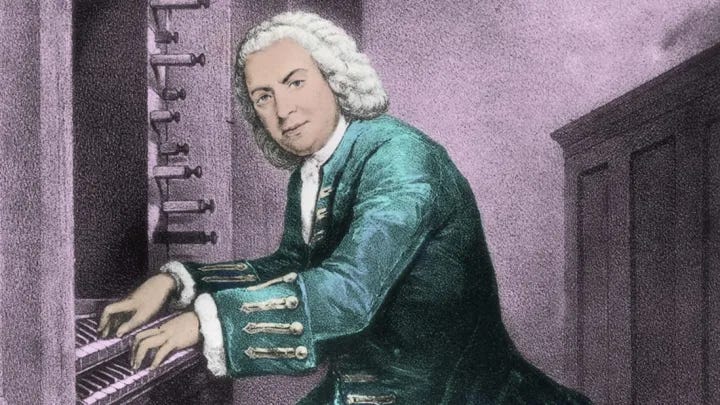Happy Johann Bach Day!
It is day twenty-eight of heritage history month and while I’ve done some literary figures, I’d be remiss to not have someone representing our musical inheritance— music is a catalyst for the culture spirit of strength and beauty, or it is a catalyst for the wretched, the chaotic. Everyone is sharing that video of the deranged sorority girls, but few have recognized that the music they are dancing to is the channel through which the spirits of revolution have entered our society.
Plato once declared that “musical innovation is full of danger to the State, for when modes of music change, the fundamental laws of the State always change with them.” It is no coincidence that the political transformations that took place after the 1960s were coordinated, by the deep state, with occultic musical themes. It is for reasons such as these that we on a journey of historical rediscovery should consider our heritage of sacred music and classical arrangements.
There are a lot of composers I could have chosen for today, and I considered the leaders of the Romantic movement, such as Mozart and Beethoven, but in the end I had to choose a master of both. Johann Bach was a German participant of the Baroque period of European music and was perhaps the final figure in the classical age of music. In many ways, he synthesized the main features of musical classicalism and was in this way a master of the inherited traditions in European musical development. Unlike the Romantics like Mozart or Beethoven, Bach shied away from excessive innovation.
Bach was largely a church composer, writing Latin church music, while incorporating in important Lutheran hymns for the benefit primarily of the churches in Leipzig. Bach’s music carried with it a keen sense of the divinity of music; its purpose was to reflect the majesty of God. Beauty therefore was objective and music, like all arts, were not primarily intended to please the individual but rather to inspire his soul to arise to meet God. Beauty in music was a mechanism for the soul and it was the responsibility of the composer to foster this pathway to Heaven.
Whereas the Romantic era saw the influence of composers who would write for performance and sought to please the individual souls, Bach had much more of a church-oriented mind, focused on the corporate quality of the gathered society. In this way, critics of his day, while of course recognizing his genius, would hold that he was old-fashioned, disinterested in the bourgeoning styles of musical experimentation.
It’s important to note about Bach too that while he wrote as a German, for the context of German ecclesiastical culture, Bach fully absorbed the sort of pan-Europeanism that was essential to the particular character of early modern Europe. He drew extensively from the Latin world, and especially composers of the high tradition such as Vivaldi. In this way, Bach was a participant in the greater European civilization, reaching out to grasp the best of Europe, and then contextualizing it for his own cultural substratum.
European civilization, like other civilizations, has developed for itself a musical accompaniment to chaperone its cycle of life. This has been true since the development of medieval Sacred Music, it was true during the very end of the Classical period in Bach, and it remains true today.
Music is not morally neutral; it carries the spirit of a people along with it; it is not downstream of culture, but more often shapes it and leads it. Sometimes, in the case of Bach, music uplifts its world. And other times music tears it down. The great contributions of Bach and others like him must be preserved as we undergo an era of culture Night.





“It is no coincidence that the political transformations that took place after the 1960s were coordinated, by the deep state, with occultic musical themes.”
I’ll grant you much of this point, but why can’t we believe that as folks relinquished the Christian ethic and drifted into paganism, that this just evolved naturally? Apart from YKW, wouldn’t all of this coalesce without a deep state? Have you written elsewhere on this theory?
My recent understanding of music is its hypnotic power which transcends consciousness apprehension of the words and sounds to directly influence the heart, soul, and subconscious. Think this is what Plato meant and makes Bach’s church music arguably as important to our heritage and perhaps more important than any written document beside the Bible.